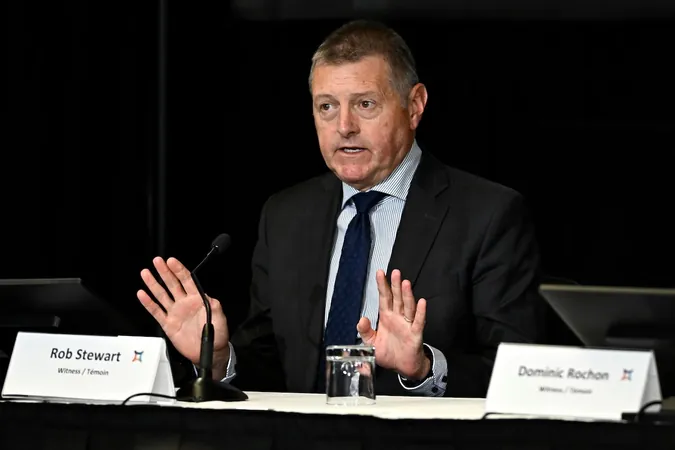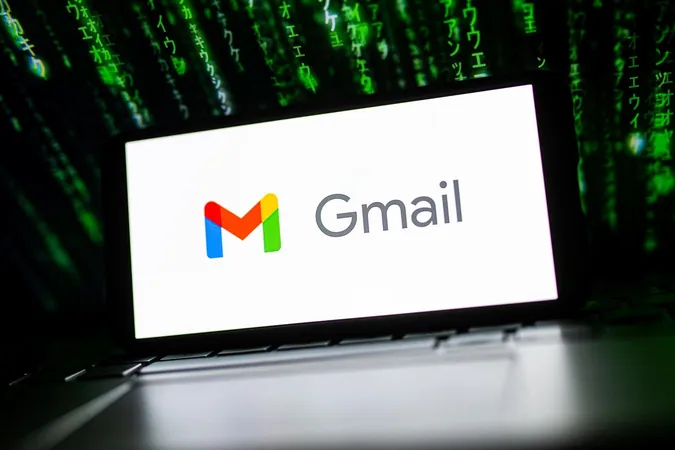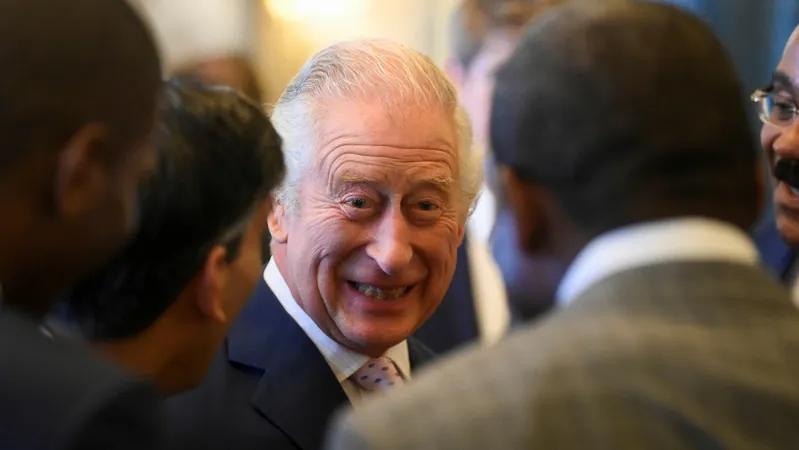
Al Pacino's Shocking Financial Struggles: From $50 Million to Broke at 70!
2024-10-16
Author: Emma
Al Pacino's Shocking Financial Struggles: From $50 Million to Broke at 70!
In his eye-opening memoir Sonny Boy, legendary actor Al Pacino reveals an astonishing downfall in his financial fortunes that began with a trusted accountant’s betrayal. The Oscar-winning star learned the hard way that even the brightest Hollywood stars aren't immune to financial pitfalls, as his once-magnificent fortune plummeted from $50 million to nothing due to a Ponzi scheme run by his accountant, who served seven and a half years in prison for his crimes.
Pacino shared that red flags started appearing as early as 2011 when he began sensing something was amiss with his finances. Despite maintaining a lavish lifestyle, including renting exorbitantly priced properties in Beverly Hills and indulging in extravagant European vacations, he felt a growing unease. “I thought, It’s simple. It’s clear. I just know this. Time stopped. I am fucked,” he recalled upon returning home and noticing no substantial changes in his bank account.
His shocking admission reveals the grim reality many celebrities face: living beyond one’s means. Pacino encapsulates this predicament with the realization that after taxes and fees, the $10 million he earned for films often dwindled to just around $4.5 million. He noted, “The more money you make, the less you have,” providing an insightful commentary on the often-deceiving nature of wealth in the entertainment industry.
Before the collapse of his finances, Pacino was selective with his roles, choosing films that resonated with him, such as Ocean’s 13. However, facing financial ruin forced him to accept roles he had previously dismissed. The turning point was his participation in Adam Sandler's much-maligned film Jack and Jill, a decision driven purely by the need for quick income. Pacino openly states, “To be honest, I did it because I didn’t have anything else.”
This drastic pivot in his career also led him to embrace commercial work, like a coffee advertisement directed by Barry Levinson, marking a departure from his earlier stance against such projects.
In a bid to regain financial stability, Pacino even sold one of his two homes and started charging for seminars. Initially, he had volunteered his time to share his experiences with students, but facing financial hardship inspired him to turn this passion into a lucrative opportunity. “I found that they worked. Audiences came because I still had popularity,” he explained.
Al Pacino’s memoir Sonny Boy serves not only as a personal account of his struggles but also as a cautionary tale about the perilous pitfalls of fame and finance. It’s a raw and revealing look into the life of one of Hollywood’s brightest stars, available now for those looking to understand both the glitter and the grime of a life in the spotlight. Don’t miss out on reading this gripping tale of resilience and redemption!









 Brasil (PT)
Brasil (PT)
 Canada (EN)
Canada (EN)
 Chile (ES)
Chile (ES)
 España (ES)
España (ES)
 France (FR)
France (FR)
 Hong Kong (EN)
Hong Kong (EN)
 Italia (IT)
Italia (IT)
 日本 (JA)
日本 (JA)
 Magyarország (HU)
Magyarország (HU)
 Norge (NO)
Norge (NO)
 Polska (PL)
Polska (PL)
 Schweiz (DE)
Schweiz (DE)
 Singapore (EN)
Singapore (EN)
 Sverige (SV)
Sverige (SV)
 Suomi (FI)
Suomi (FI)
 Türkiye (TR)
Türkiye (TR)